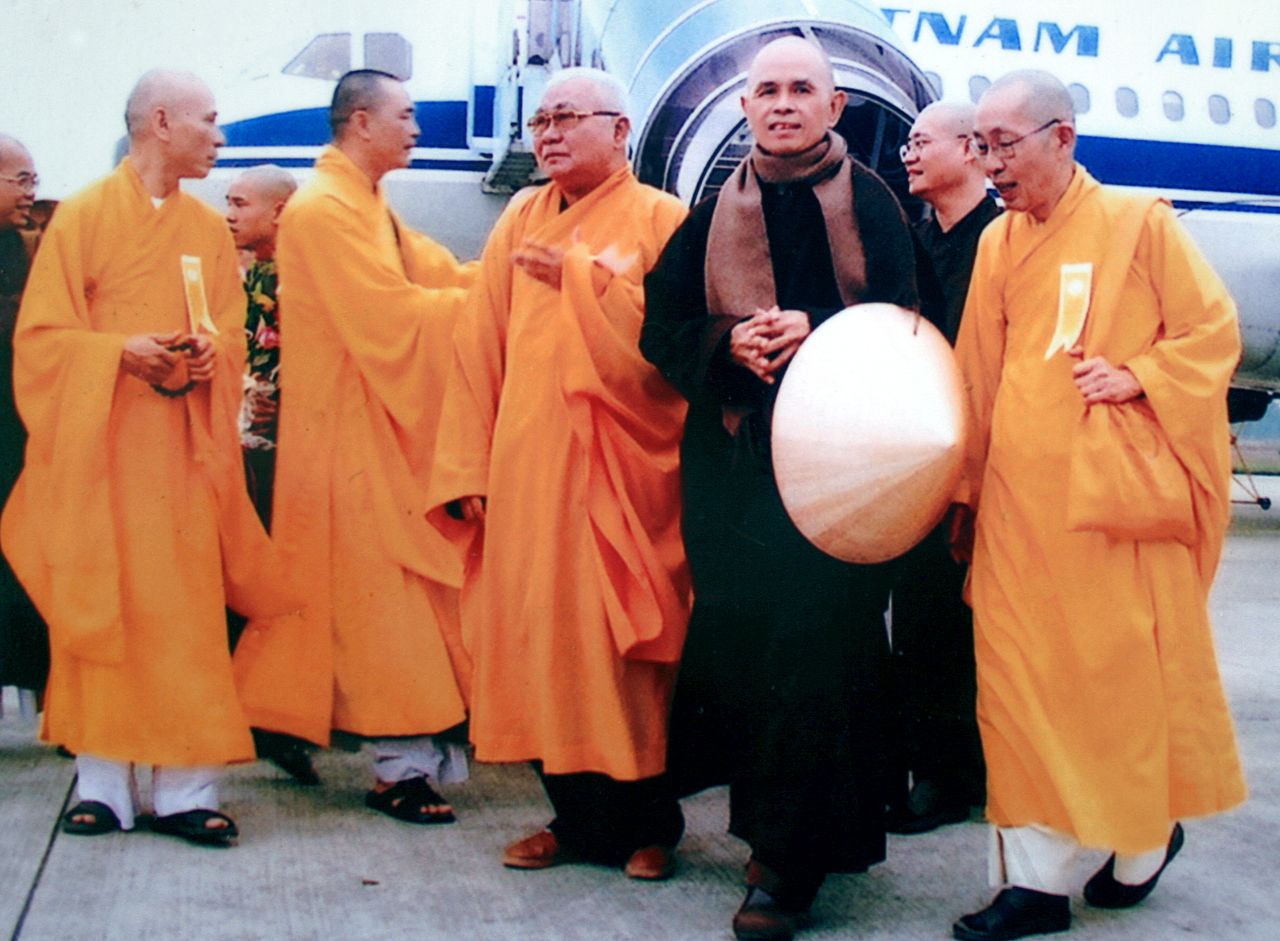
“The roots of war are in the way we live our daily lives–the way we develop our industries, build up our society, and consume goods. We have to look deeply into the situation, and we will see the roots of war. We cannot just blame one side or the other. We have to transcend the tendency to take sides. …
… Anger is an unpleasant feeling. It is like a blazing flame that burns up our self-control and causes us to say and do things we regret later. When someone is angry, we can see clearly that he or she is abiding in hell. Anger and hatred are the materials from which hell is made. A mind without anger is cool, fresh, and sane. The absence of anger is the basis of real happiness, the basis of love and compassion.
When our anger is placed under the lamp of mindfulness, it immediately begins to lose some of its destructive nature. We can say to ourselves, “Breathing in, I know that anger is in me. Breathing out, I know that I am my anger.” If we follow our breathing closely while we identify and mindfully observe our anger, it can no longer monopolize our consciousness. …
…When we are angry, our anger is our very self. To suppress or chase it away is to suppress or chase away our self. When we are joyful, we are the joy. When we are angry, we are the anger. When anger is born in us, we can be aware that anger is an energy in us, and we can accept that energy in order to transform it into another kind of energy. ….
…If you are mindful in the morning and try to nourish mindfulness throughout the day, you may be able to come home at the end of the day with a smile, which proves that mindfulness is still there.”
—Thich Nhat Hanh, from Peace is Every Step, Bantam Books. The full version of this essay appears in Parabola, Winter 1991: “The Golden Mean.” This issue is available here.
